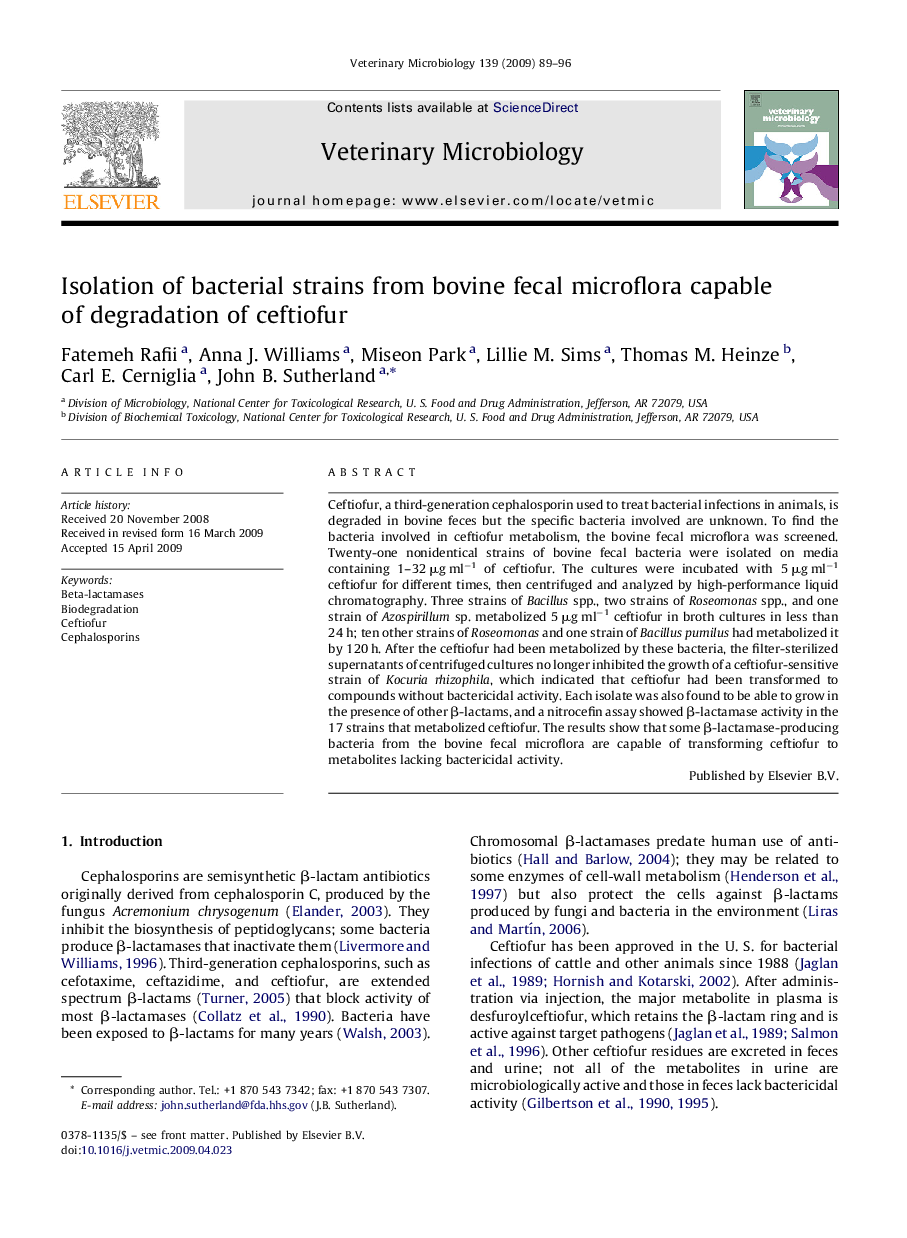| Article ID | Journal | Published Year | Pages | File Type |
|---|---|---|---|---|
| 2468225 | Veterinary Microbiology | 2009 | 8 Pages |
Ceftiofur, a third-generation cephalosporin used to treat bacterial infections in animals, is degraded in bovine feces but the specific bacteria involved are unknown. To find the bacteria involved in ceftiofur metabolism, the bovine fecal microflora was screened. Twenty-one nonidentical strains of bovine fecal bacteria were isolated on media containing 1–32 μg ml−1 of ceftiofur. The cultures were incubated with 5 μg ml−1 ceftiofur for different times, then centrifuged and analyzed by high-performance liquid chromatography. Three strains of Bacillus spp., two strains of Roseomonas spp., and one strain of Azospirillum sp. metabolized 5 μg ml−1 ceftiofur in broth cultures in less than 24 h; ten other strains of Roseomonas and one strain of Bacillus pumilus had metabolized it by 120 h. After the ceftiofur had been metabolized by these bacteria, the filter-sterilized supernatants of centrifuged cultures no longer inhibited the growth of a ceftiofur-sensitive strain of Kocuria rhizophila, which indicated that ceftiofur had been transformed to compounds without bactericidal activity. Each isolate was also found to be able to grow in the presence of other β-lactams, and a nitrocefin assay showed β-lactamase activity in the 17 strains that metabolized ceftiofur. The results show that some β-lactamase-producing bacteria from the bovine fecal microflora are capable of transforming ceftiofur to metabolites lacking bactericidal activity.
